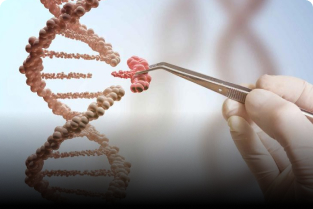In the rapidly evolving landscape of science and technology, two disciplines stand out for their transformative potential: nanotechnology and genetic engineering. Each holds the power to redefine how we approach medicine, agriculture, manufacturing, and even environmental sustainability. But a compelling question arises: Will nanotechnology be as important as genetic engineering in the future?
Let’s explore both fields, their potential impact, and how they might shape the future together—or apart.
Understanding the Fields
🔬 What is Nanotechnology?
Nanotechnology involves manipulating matter at the nanoscale (typically less than 100 nanometers). At this tiny scale, materials can exhibit unique physical, chemical, and biological properties that differ significantly from their larger-scale counterparts. Nanotech is already being used in drug delivery, electronics, materials science, and energy solutions.
🧬 What is Genetic Engineering?
Genetic engineering is the direct manipulation of an organism’s DNA to alter its characteristics. It’s widely used in medicine (e.g., gene therapy), agriculture (e.g., GMO crops), and synthetic biology. The field saw a major leap with technologies like CRISPR-Cas9, which allows precise gene editing.
How Will They Impact the Future?
1. Healthcare Revolution
-
Nanotechnology: Enables targeted drug delivery systems, nanosensors for early disease detection, and even cancer treatment at the cellular level.
-
Genetic Engineering: Offers cures for genetic disorders, personalized medicine, and potential eradication of inherited diseases.
🧠 Verdict: Both will revolutionize healthcare, but in different ways—nanotech at the molecular level, genetic engineering at the DNA level.
2. Agricultural Transformation
-
Nanotechnology: Used in smart fertilizers, pesticides, and nanosensors to monitor soil and crop health.
-
Genetic Engineering: Produces crops with enhanced yield, resistance to pests, and adaptability to climate change.
🌾 Verdict: Genetic engineering currently leads in agriculture, but nanotech could enhance precision farming.
3. Environmental Sustainability
-
Nanotechnology: Can purify water, clean pollutants, and create more efficient energy storage systems (like nanobatteries).
-
Genetic Engineering: Can create organisms that consume waste, absorb CO₂, or clean oil spills.
🌍 Verdict: Both contribute in powerful ways—nanotech through materials, genetic engineering through biology.
4. Ethical and Regulatory Challenges
Both fields face major ethical questions:
-
Nanotech raises concerns about toxicity, surveillance, and unintended consequences.
-
Genetic engineering involves debates on gene editing, designer babies, and ecological disruption.
⚖️ Verdict: The success of both technologies will depend heavily on public perception, regulation, and ethical governance.
Will Nanotechnology Be As Important?
Yes—nanotechnology is likely to be just as important as genetic engineering, though its influence may be more subtle and systemic. While genetic engineering changes the code of life, nanotechnology enhances the tools of life. They are complementary, not competing.
In fact, future breakthroughs may come from the intersection of both fields—like nanoscale gene-editing tools or DNA-based nanorobots.
Final Thoughts
Both nanotechnology and genetic engineering are poised to shape the future of humanity in profound ways. Rather than asking which is more important, it’s more realistic—and exciting—to view them as twin engines of innovation driving the future of science, medicine, and the environment.

